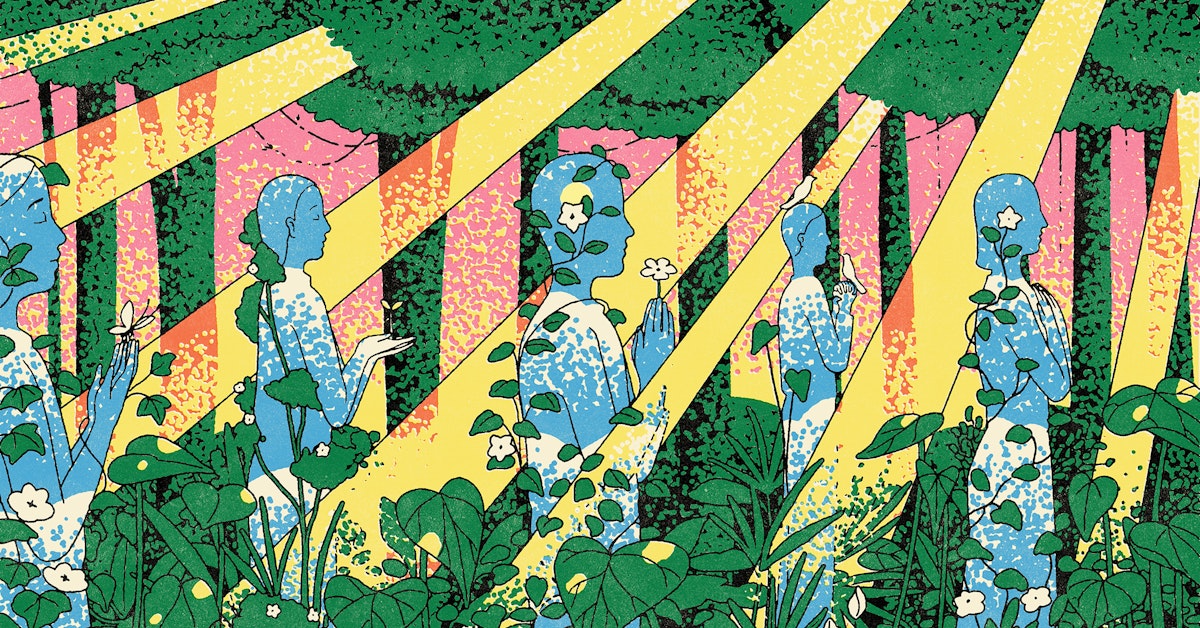The article discusses the links between traditional sacred practices and care for the environment and the world, and then asks about modern secular societies:
Where does this leave secular societies in which technological or policy-focused solutions to environmental problems are not working, but where identification with the sacred has waned over time? Can something as deeply personal and experiential as the sacred be meaningfully shaped by design? Could mundane, often thankless tasks — cycling, tree-planting, recycling — be reframed not as chores, but as rituals of care and connection that inspire deeper commitment to environmental stewardship?
And continues, pointing out sacred spaces don’t require religious belief:
The sacred need not be confined to formal religion. While the Grand Bassin’s significance is rooted in Hindu mythology and practice, the orientation it reflects — a sense of reverence, moral weight and emotional resonance — can arise in many forms. Sacredness emerges wherever people set something apart as meaningful beyond its utility: a forest grove, a war memorial, a national flag, a moment of collective silence. What matters is not the doctrine behind it but the way it shapes how people think, feel and act.
Of course, one might ask whether it’s even possible to promote rituals of care in the absence of care itself. Wouldn’t such efforts ring hollow or fail to resonate with those who feel disconnected from the natural world in the first place? But this is precisely where sacralization matters most. Sacredness does not only emerge from what people already revere — it actively helps generate that reverence. Rituals can bring people into a different frame of mind, one in which meaning accumulates through repetition, symbols take on weight and ordinary acts begin to feel purposeful. If environmental stewardship is to take root, it may not be enough to wait for people to care. Sometimes the path to care begins with practice.
Ritual helps people to care. Ritual, to put it another way, helps create empathy. And the natural world could definitely use some care and empathy these days.



Mumbo jumbo sounds very defensive to me. It’s strange how people get quite angry or at least really dismissive when you mention anything that is beyond the commonly accepted mainstream science - even when there’s no direct harm done to them by people talking about it. It’s also strange when you find out how many actual scientists are animists or carry some sort of spiritual belief.
When you get deeper into indigenous philosophies (branded since the times of enlightenment as superstitious mumbo jumbo) you often find belief systems that are incredibly pragmatic and would solve many of the social and environmental problems our rationalist thoughtscape has brought about, but our Western supremacist education makes it difficult for us to accept how much we could gain by opening up to it.
I became an animist after reading about the concept of Wendigo, and then applying the scientific method to indigenous belief systems by just acting as if they were true and finding out what happens in my life. For a brief period after the landscape and my ancestors were starting to speak to me I wasn’t sure whether I was descending into psychosis, but ultimately the results of listening to these voices and taking their guidance were more sound than continuing to follow the un-guidance of Western rationalist culture. At the same time I met quite a few people who were going through the same changes of mind. There seems to be an interesting process going on that brings more and more people back into a connection and relation with non-human life (animals, plants, rivers, mountains, ancestors …) and those who open up to it are usually those who I consider working for positive improvements (social justice, environmental issues), so I consider them my family.
The very first opening up, even before reading about Wendigo, was by me being a pet owner and having some experiences with my horse that showed a depth of soul I could not continue to dismiss - so maybe you want to ask your dog about what they think about the mumbo jumbo? ;-)
Thank you for that link, it was really helpful.
pfft. Certainly. Defensive of my time usage and boredom. How about everyone spends an hour going through a 6 minutes on the top ten most popular beliefs. As I said as long as I know I can just come after or skip it if its placed after. The main thing is to identify when the real thing begins and when the fluff takes place. Better for it to be after so that you don’t come and get the people who are like well the fluff started late so we still need a few for it. The main thing is respect. Let those who want ceremony to break into whatever groups represent their particular ceremonies with dedicated time and let those who don’t want that part to skip it.